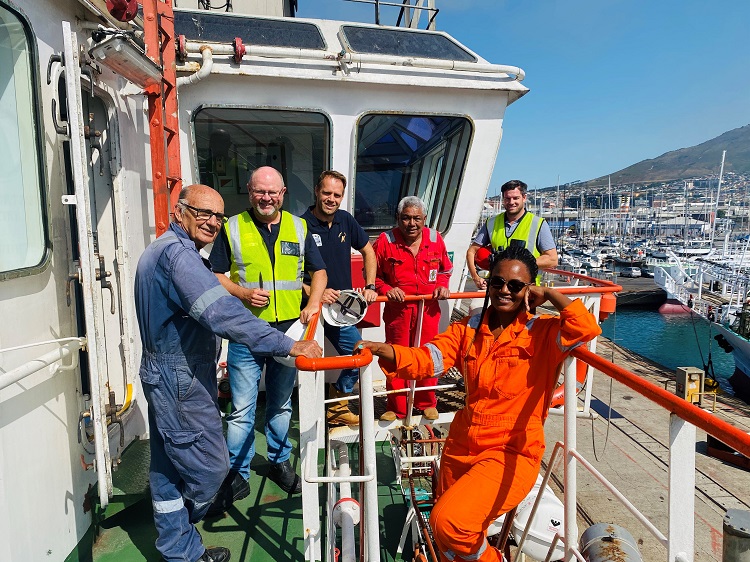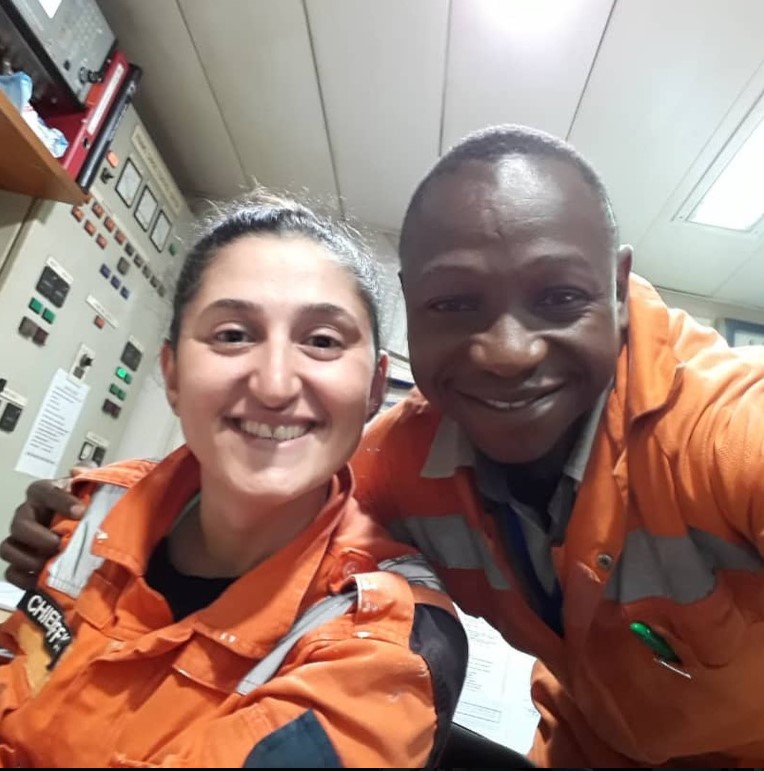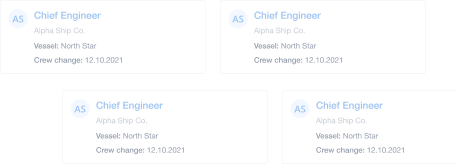Soft skills are a necessity no matter which industry you work in. The maritime industry requires that the people who work in it know how to work in a team due to the nature of its day-to-day workflow. According to published research centered on maritime jobs, soft skills are “a cluster of qualities, habits, personality traits, attitudes, and social graces”.
They directly impact a professional’s performance and can lead to up to 22.1% higher earnings for those who partake in team activities as professionals. Let’s talk about which soft skills you should focus on in the maritime industry to get better jobs and become more sought-after by prospective maritime employers.
5 Soft skills for maritime industry jobs
1. People Skills
Instead of breaking down minute soft skills related to interpersonal communication (they’re just that similar to one another), let’s label them as “people skills”. People skills relate to soft skills which are centered on your ability to communicate with others. These skills include active listening, teamwork, team management, objective communication, and writing skills among others.

Courtesy of the IMO #MaritimeWomenPhotoShare Campaign
Any skills which revolve around your ability to speak your mind and be understood by others are “people skills”. They are also crucial for maritime professionals who want to work as part of a maritime crew or any other position which requires teamwork. Without these skills, you’ll have a difficult time making professional connections, integrating into a team, and otherwise developing a maritime career.
Nicole Garrison, writer, and editor at Supreme Dissertations spoke on the matter:
"Being an effective communicator will make your resume far more appealing to employers looking for reliable maritime professionals. You can showcase your communication skills by writing a good resume and then demonstrating how effective of a communicator you are during your job interview. Knowing how to work with others is an invaluable skill in today’s global job market."
2. Problem Solving
Problem-solving is a soft skill that can be found in pretty much any industry and profession. It revolves around the person’s ability to solve workflow-related issues without panicking and freezing up. Problem-solving is a skill best developed practically. It’s somewhat tricky to work on your problem-solving in a controlled environment, such as in a seminar or an online course.
Problem-solving is closely related to team management, project management, and resource management. It also relates to critical thinking, as you’ll have to be objective and cool-headed when dealing with maritime industry issues. However, once you get a handle on your problem-solving skills, you will start to excel at your job and become an invaluable part of your team or crew.
3. Emotional Intelligence
Regardless of whether you’ll find yourself in a managerial position or not, it’s always handy to be familiar with emotional intelligence as a soft skill. Emotional intelligence represents the skill to recognize, understand, and positively use your emotions. It also refers to your ability to recognize emotional distress in others and to help them overcome it.
As a maritime professional, you’ll sometimes work with others on the water for weeks and need to rely on one another, day-in and day-out. Being emotionally intelligent means that you’ll be able to support your crew through thick and thin, both as a professional and as a friend.

Courtesy of the IMO #MaritimeWomenPhotoShare Campaign
For example, you can use TrustMyPaper or Evernote to write flashcards or short essays which your team can use as helpful tips and points on emotional intelligence. This soft skill can effectively make you the heart of your team and make your expertise and contribution to the team precious.
4. Work Ethics
Work ethics relates to your ability to focus on your job and do what’s expected of you during work hours. Healthy work ethics mean that you’re able to tune out distractions and do what you were hired to do as a maritime professional.
Whether you’re a seafarer, a shipping operator, or work in a maritime warehouse loading and unloading goods, good work ethics will go a long way in helping your career. With great work, and ethics comes a good reputation, and your managers and other employers will be on the lookout for you.
You will be able to contribute to your team in meaningful ways and help those around you focus on the work at hand as well. This is a highly valuable trait to have as a professional regardless of the industry you’ll work in.
5. Life-Long Learning Attitude
No matter where you work, you’ll always be required to learn new skills and gain new expertise to do your job well. Maritime work is no different, as you’ll have to learn about new technologies, trends, and hard skills constantly. Employers are always on the lookout for individuals who like to learn. That’s why being a life-long learner (LLL) will play to your advantage as a job seeker.
If an employer sees that you like to learn and want to become better and better at your job, they’ll be more inclined to hire you. Moreover, being passionate about learning will mean that you’ll always be a step ahead of your colleagues when it comes to industry insight about current news and trends. This is a healthy and useful soft skill to pick up, so try your hand at some online courses to see whether LLL suits you personally.

In Summary
Soft skills which are useful in the maritime industry boil down to those which help you work better with others. They can make you a better team player, a more effective communicator, and a problem-solver. These skills, when applied in maritime jobs, can mean the difference when making shipping deadlines or saving a colleague’s life at sea.
Likewise, they can improve your resume, lead to better career opportunities, and a higher sense of fulfillment from the work you do on the water. For that alone, these skills are worth developing, whether you’re an established maritime professional or someone who’s only now dipping their proverbial toes into the industry.
Article written by Erica Sunarjo for Martide.

Guest Blogger
A varied collection of articles about the maritime industry written for Martide by various guest bloggers from their own unique perspectives. These include posts by a professional chef who works on container ships and other people connected to, or interested in, shipping and life at sea.




